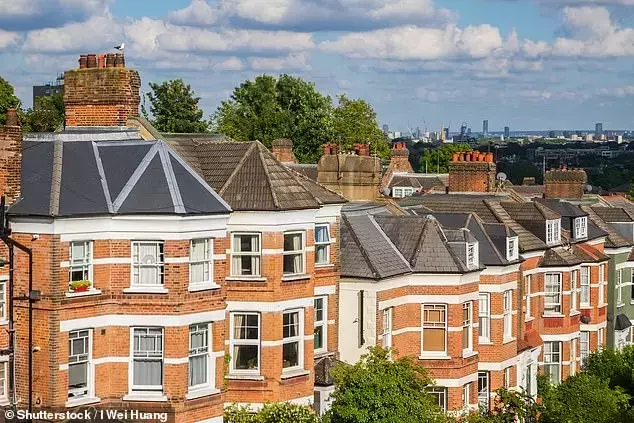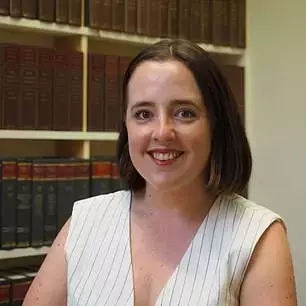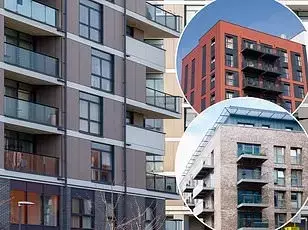






Owners of apartments in multi-unit buildings often face intricate decisions regarding property rights. A common scenario arises when one resident, currently holding a leasehold, wishes to acquire a share of the building's freehold from existing co-freeholders. This article dissects the various facets of such a transaction, offering comprehensive insights into the financial, legal, and relational implications for all parties involved.
Consider a Victorian dwelling transformed into three distinct apartments. The top-floor resident and the ground-floor resident jointly possess the freehold, while the middle-floor resident holds a leasehold, with the co-freeholders effectively acting as their landlords. The middle-floor resident recently expressed interest in purchasing a share of the freehold. The ground-floor neighbor, contemplating selling their apartment, sees this as an opportunity to secure additional funds, proposing a collective sum of £30,000 for the share. The ground rent for the middle flat is minimal, primarily covering communal electricity costs, and the lease has 114 years remaining. The core questions then become: what is an appropriate selling price, is the transaction truly beneficial, and what are the associated pros and cons of welcoming a third co-freeholder?
Ed Magnus, a senior reporter, highlights that this situation is prevalent in expensive urban areas where large houses are frequently converted into multiple flats. Historically, the building likely had a single freeholder who subsequently divided it into leasehold units. Over time, some leaseholders may have collectively purchased the freehold. In this specific case, the middle-flat owner at the time chose not to participate, resulting in the current two-party freehold ownership. Selling a share could be advantageous, but the potential buyer might not agree to a price as high as £30,000.
Given that the middle flat's lease has 114 years remaining and the ground rent is negligible, acquiring a freehold share might not significantly increase the property's value. However, the leaseholder might be keen to gain more control over building management or improve the flat's future marketability, especially as leasehold properties can deter some buyers. Expert advice was sought from Mari Knowles, a solicitor specializing in commonhold and leasehold matters; Andrew Boast, a director at Sam Conveyancing; Linz Darlington of Homehold, a lease extension specialist; and Olivia Egdell-Page, head of the property department at Joseph A Jones & Co.
Olivia Egdell-Page explains that a 'share of freehold' typically means individual apartment owners also collectively own the building's freehold, encompassing the roof, foundations, and communal areas. This structure empowers residents to collaboratively manage the building's maintenance, insurance, and expenses. For instance, if the hallway requires redecoration, the freeholders decide and arrange it. Moreover, extending leases becomes a more straightforward and often less costly process compared to dealing with an external freeholder.
Linz Darlington notes that if the middle flat had joined the original freehold purchase, the cost would have been considerably lower, perhaps £3,000 to £4,000 based on a fixed ground rent of £100. Since they did not, there's no automatic right to participate now, granting the current freeholders flexibility in their asking price. However, setting an excessively high price might prompt the leaseholder to decline. The final price will depend on mutual agreement regarding its perceived value. Mari Knowles adds that the sale process is unregulated, leaving the terms to be negotiated. A valuer is often engaged to determine a fair purchase price, influenced by the existing lease terms and any potential lease extension. Freeholders typically also seek reimbursement for legal fees and tax liabilities.
Andrew Boast advises obtaining a specialist Royal Institution of Chartered Surveyors valuation as a crucial first step to inform both parties' decisions. He estimates the process to take four to eight weeks, with additional costs for valuation and conveyancing. Legal fees for both sides could amount to around £1,000 each. Linz Darlington points out the legal complexities of adding a new co-freeholder, which involves engaging a lawyer to update the title or company structure. The duration of this process depends on the lawyer's efficiency.
Olivia Egdell-Page highlights the advantage of shared property management, where responsibilities like utility providers and fire risk assessments are distributed among all co-freeholders. This collective ownership motivates residents to maintain the property's condition. Linz Darlington emphasizes that involving a third flat fosters a more democratic living environment, promoting equal investment and standing. Mari Knowles suggests that beyond any income from the sale, having all residents as freeholders simplifies decision-making, particularly for major improvements like roof repairs or electric vehicle charging point installations.
Andrew Boast urges the current freeholders to consider their relationship with the middle-flat resident. Evaluating whether she is a cooperative individual who could contribute positively to the shared workload is important. While more freeholders can distribute responsibilities, it can also complicate decision-making, especially for significant choices. For example, all shareholders must sign off on the sale of a leasehold, and an uncooperative or unreachable co-owner could pose problems. It's also crucial to remember that new owners will eventually join the freehold, requiring ongoing collaboration. He notes that while being a share of freeholder would allow for easier extension for a top or bottom floor flat, a middle-floor flat would likely not benefit from such an extension.
Linz Darlington warns that current freeholders would relinquish some control by including a third party. He recommends extending any short leases (less than 250 years or with ground rent) before involving a new freeholder. Olivia Egdell-Page points out that disagreements among co-freeholders can strain neighborly relations, as consensus is required for many decisions. Andrew Boast explains that the new buyer would experience an increase in their flat's value, which a valuer can approximate. Additionally, a freehold share simplifies future lease extensions, though with 114 years remaining, the immediate benefit is minimal. However, in two decades, extending the lease would become more pertinent.
Mari Knowles confirms that there is no legal obligation for the current co-owners to sell a share of the freehold, making it a purely voluntary decision between them. The initial step for the current freeholders is to collectively decide if they are willing to proceed with the sale. This decision is entirely at their discretion and requires their mutual agreement.
